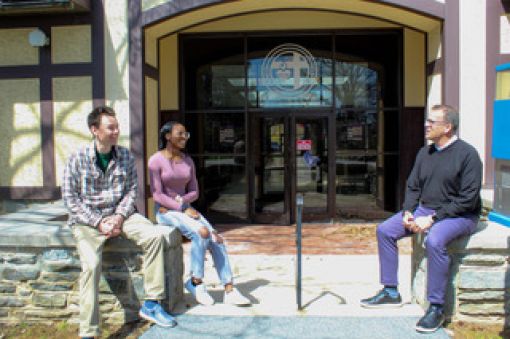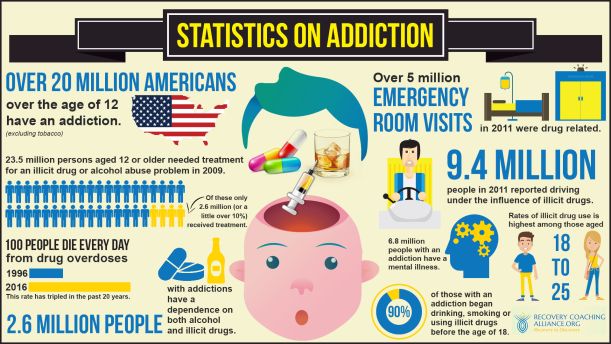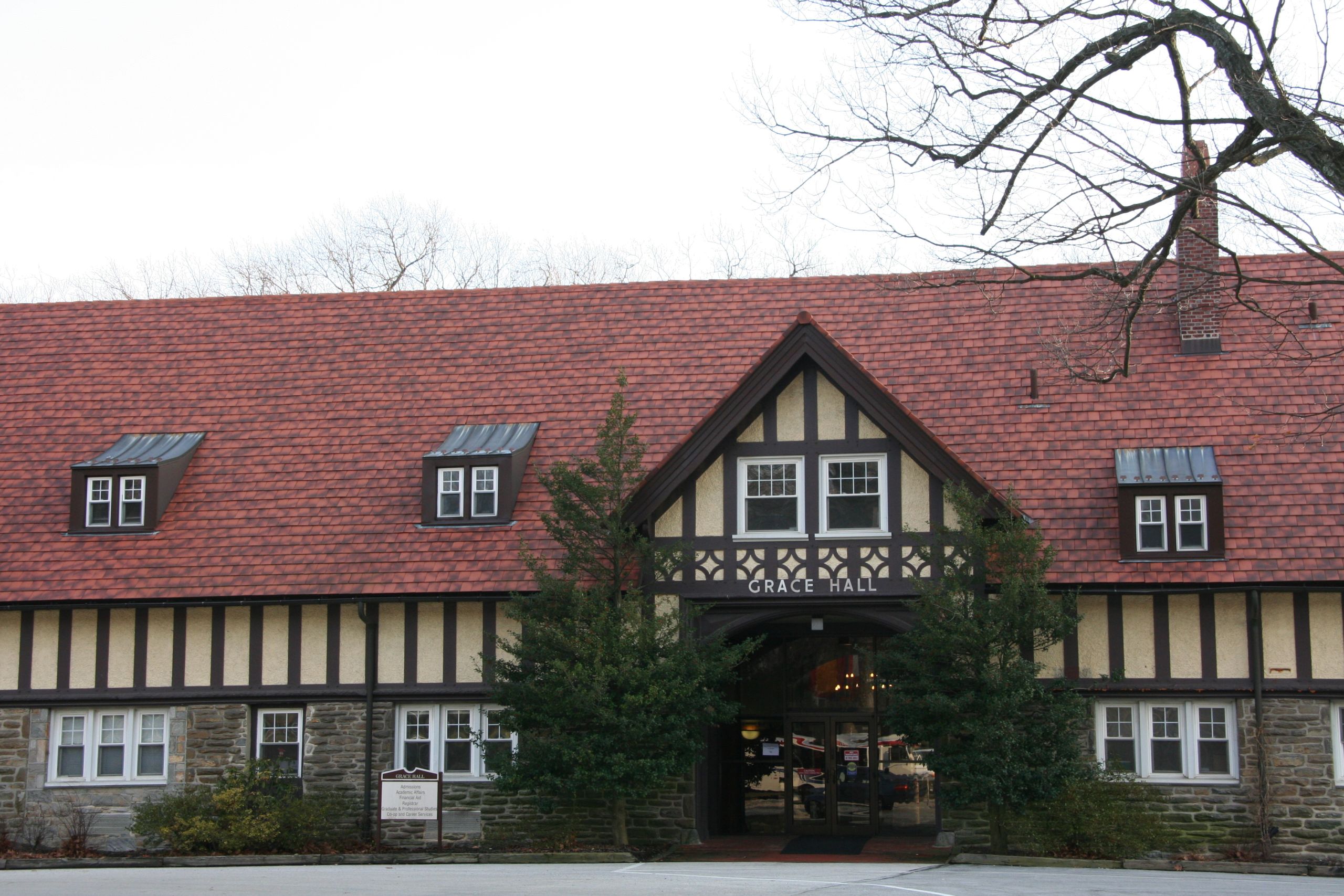Cabrini University has launched a Collegiate Recovery Program for students dealing with addiction, mental health issues and eating disorders.
“It’s a peer support program for any student who has been touched by addiction in any way,” Phil Waibel, graduate assistant of the collegiate recovery program at Cabrini, said. “Whether it’s drugs, alcohol, gambling, sex, eating or they know someone who has struggled and it’s affected their personal life and they want a safe space to come and discuss it, this is just a room for all of those students to talk about where they’re at and what they’re dealing with.”
For students looking for a way to de-stress and vent their thoughts, stop by the program meetings every Tuesday between 2-3 p.m. in Grace Hall room 247. The sessions are an hour long, held in a round-table like group counseling.

If students worry they might be judged for what they say, Pat Brown, coordinator of the program and licensed social worker, offers reassuring words. “What happens in this room stays in this room,” Brown said. Everything that is said is completely confidential.
Waibel also reassures that sessions are filled with positivity and compassion. “The main goal is to destroy the stigma and encourage relatability,” Waibel said. “We want everyone in the room to know that they are not alone in their struggles.”
Even if students aren’t struggling with these issues, Kiara Moore, senior health science major and program assistant, says that by attending the sessions, students can learn to help others.
“Addiction doesn’t have a look,” Moore said. “You don’t know what anyone is dealing with; your roommate could be struggling and you would never know, so people should care because someone you know could be struggling in silence. If you knew more, you could help them.”
Waibel, who has been personally affected by addiction, notes that drug addiction has increased exponentially in the Philadelphia area.
“The opioid epidemic is sweeping through the United States and the epicenter is in Kensington, Philadelphia,” Waibel said. “Whether we like to admit it or not, the effects of it ripple out into suburban areas.”

Waibel elaborates saying, “People have a misconception that addiction is only the people who are down in the city putting needles in their arm and that’s not true. The reality is a lot of people are affected by it in their homes at their dinner table and they don’t even know it from prescription pill abuse.”
Drug addiction can affect people in countless ways- from an actual addiction to the consequential violence and neighborly unrest.
The Collegiate Recovery Program coordinators passionately exclaim how the first step in healing and recovery is to reach out to your community.
“The beginning of change is connection and feeling a part of something greater than you,” Waibel said.
Therapy is important for everyone- not just people who suffer with their mental health. It is a way to be honest with yourself and confide in another person, trusting they will be there to catch up if you fall.
Moore agrees: “It’s here,” Moore said. “We’re not therapists or counselors [except Brown], we’re not taking away from the Counseling Services, we’re another resource if you can’t get in CAP [Counseling and Psychological Services] right away and you need someone to talk to. We’re here [to help].”
Though the program is not technically therapy, it’s a stepping stone for students who are overwhelmed to seek out off-campus counseling services for reasons of stigma, accessibility or financial troubles. The service is 100 percent free with no obligations to keep coming back.
Interested in going?
“My word of advice would be if you’re curious about what it is- if you’re not sure if you’re being affected by it but you want to ask someone- if you’re struggling in any way about any type of mental health issue, [especially in light of COVID-19; everyone is just isolated, alone, depressed and anxious] this is an area to just come and talk about it,” Waibel said. “You’re not going to be judged; no finger pointing. It’s just like, ‘are you struggling?’ ‘Yeah, we are too.’”
Feel free to email questions to: Recovery@cabrini.edu or program coordinators: Pat Brown, LCSW at jb3464@cabrini.edu, Phil Waibel (Graduate assistant) at pw7002@cabrini.edu, or Kiara Moore (Undergraduate assistant) at knm86@cabrini.edu for more information.
Alternatively, if you would like to schedule an individual appointment with CAP, please call 610.902.8561 or email counselingcenter@cabrini.edu
If you are experiencing a mental health emergency, please contact 911, go to your nearest emergency room, or contact Cabrini Public Safety at 610.902.8111.
National Suicide Prevention Lifeline: 1.800.273.8255
Crisis Text Line: Text “HOME” to 741-741




